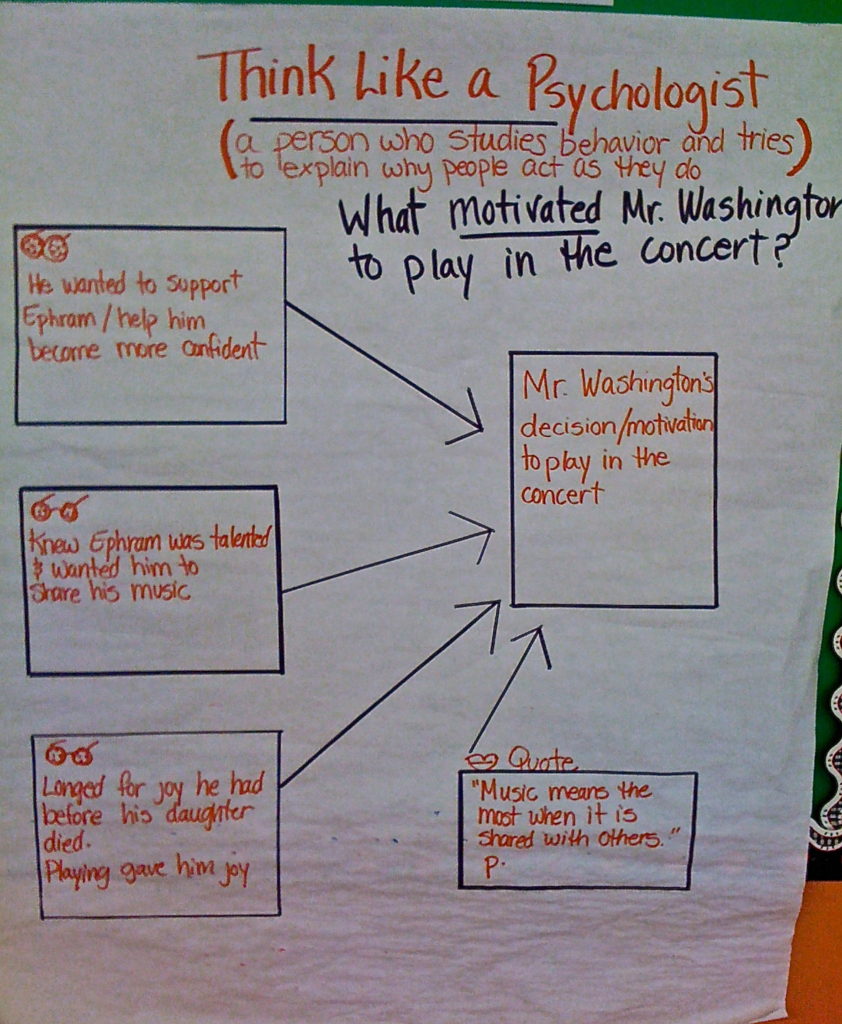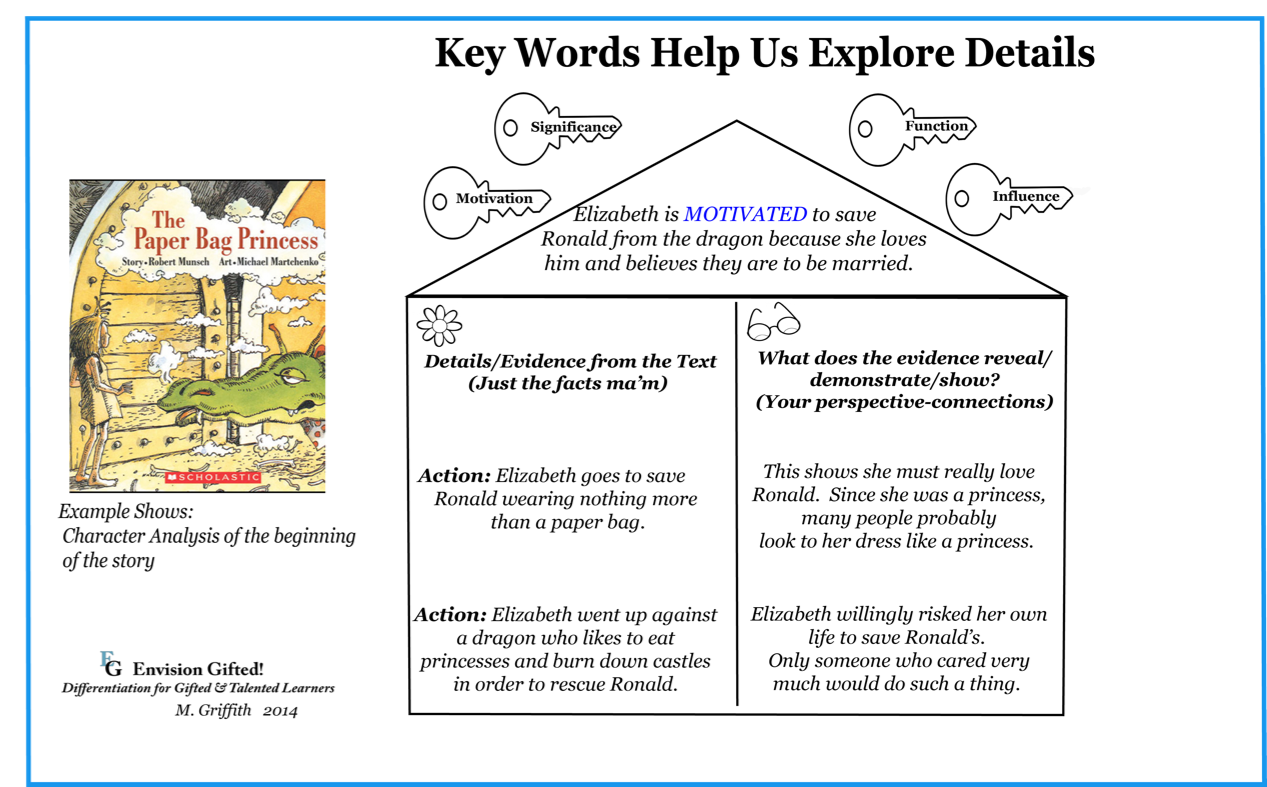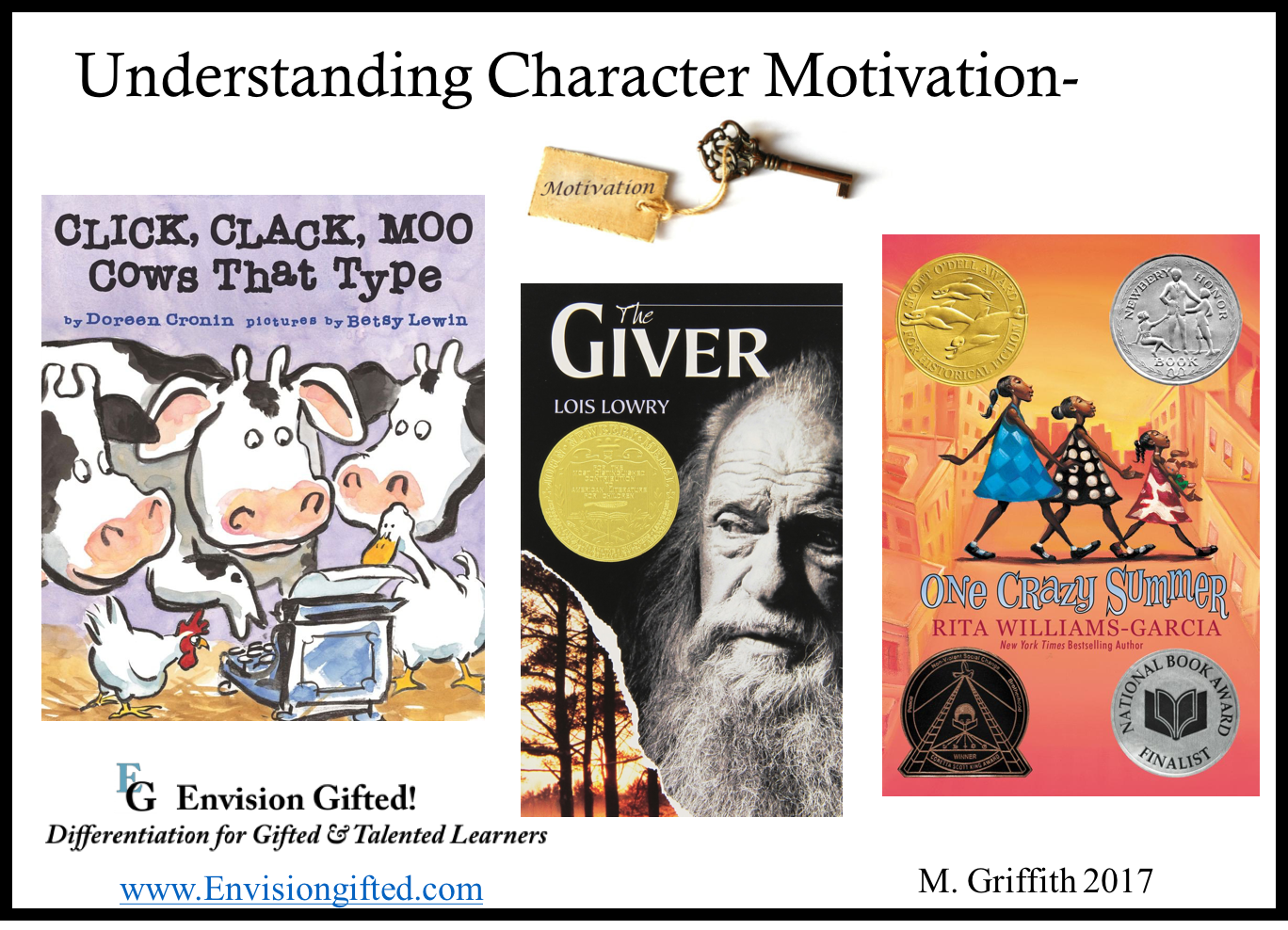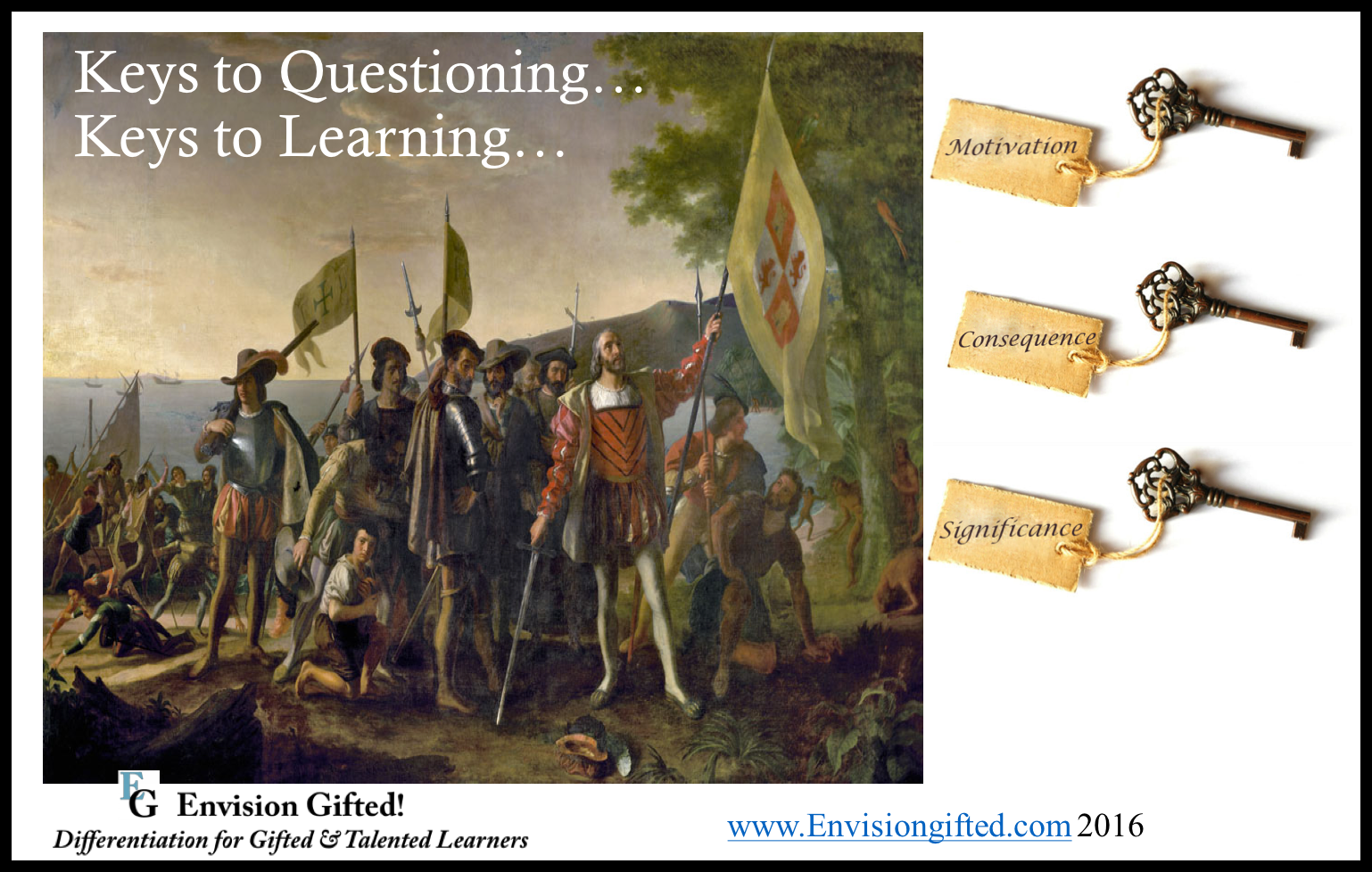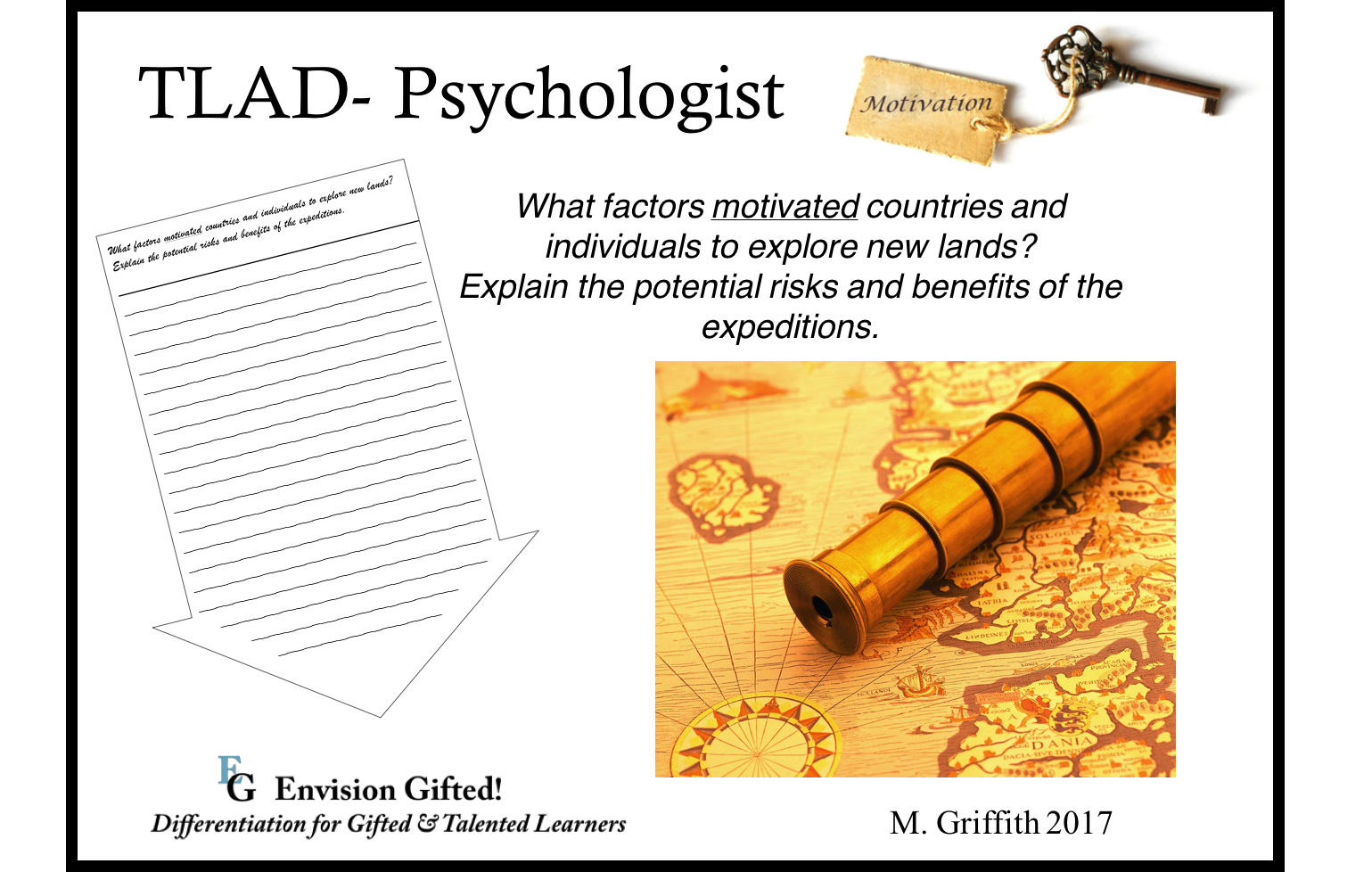 How to use Think Like a Psychologist to better understand character motivation.
How to use Think Like a Psychologist to better understand character motivation.
- Define the discipline-
Psychologist- A person who studies behavior and tries to explain why people act as they do. Download files for character motivation.
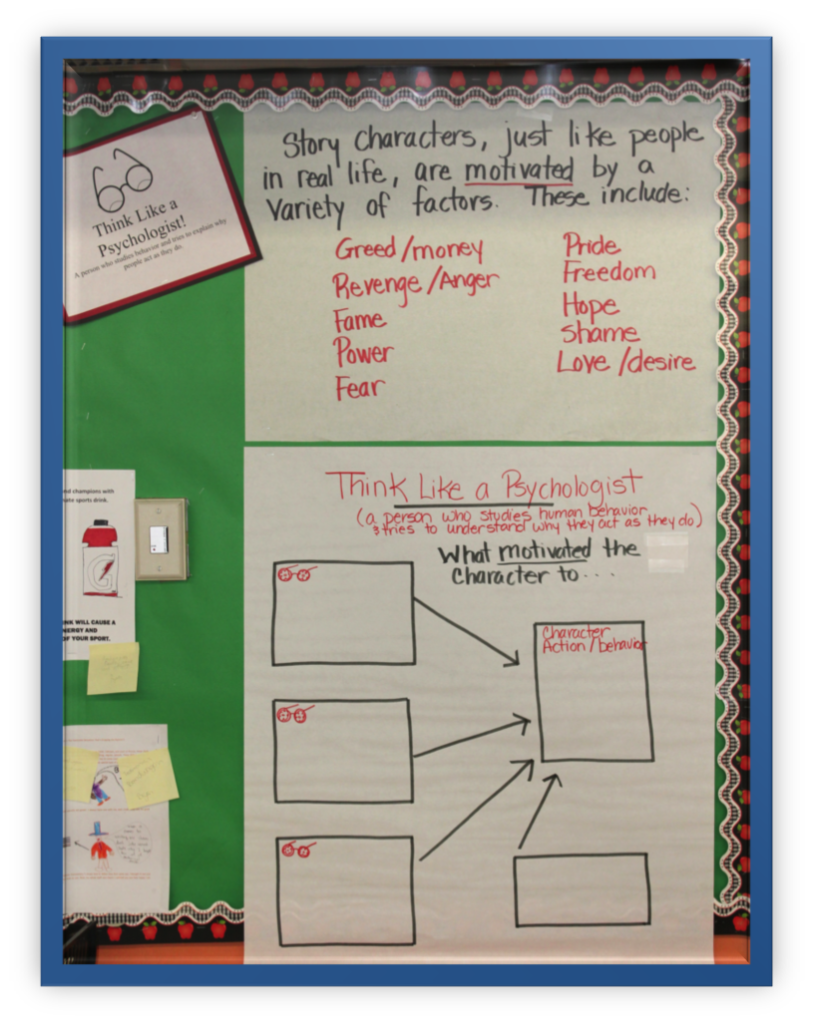 Think Like a Psychologist: Character Motivation
Think Like a Psychologist: Character Motivation
This is a framework that can be utilized throughout the year.
Explain to students that in order to get a deeper understanding of the story, they will be thinking like psychologists. Introduce them to the discipline with the explanation that a psychologist is a person who studies behavior and tries to explain why people act as they do. Next, introduce the term “motivation”, making the link back to psychology explicit. Explain to students that story characters, just like people in real life, are motivated by a variety of factors.
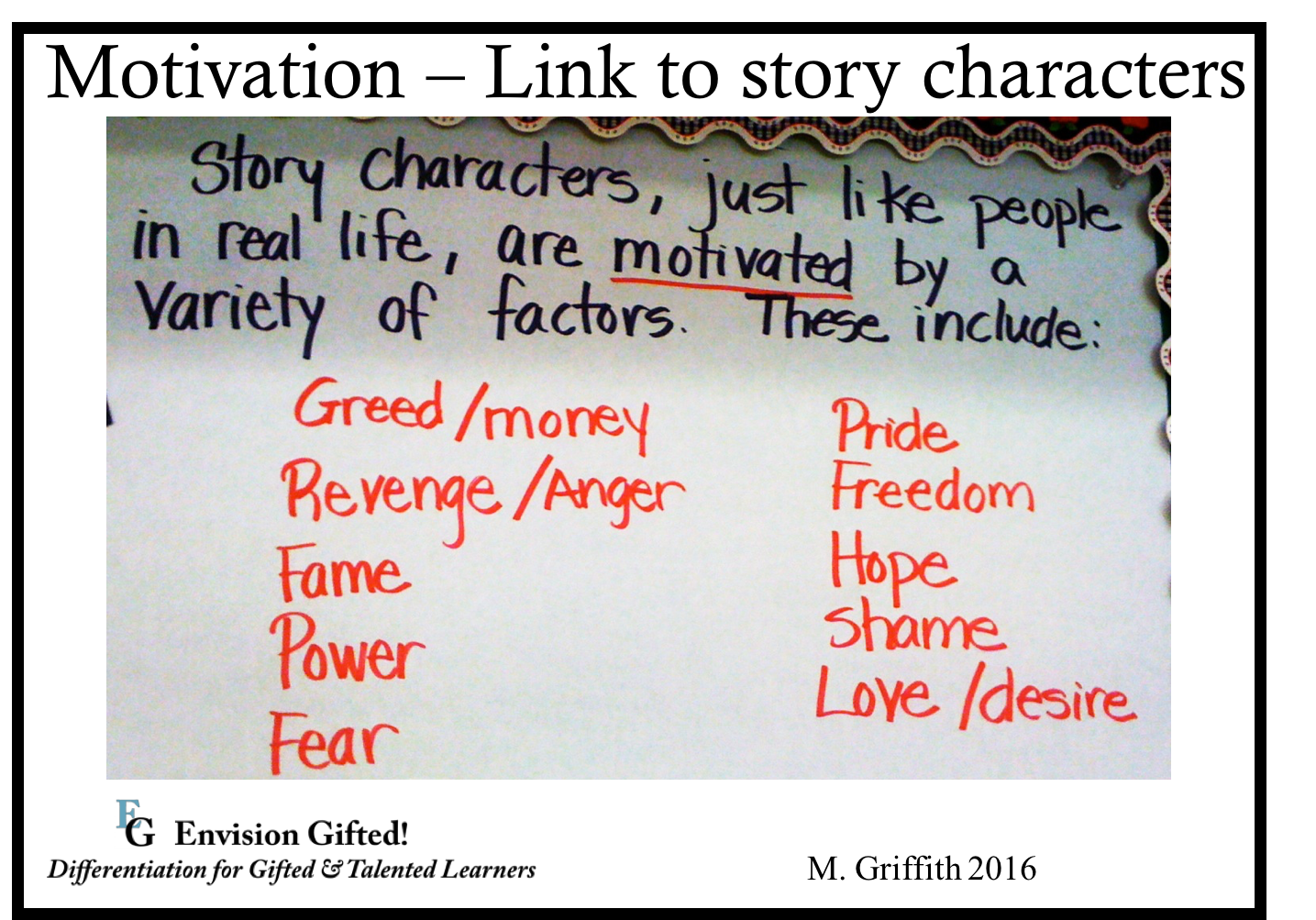 Have students brainstorm common things that motivate people. Chart their answers. Typical responses have been: greed, revenge, fame, power, freedom, love, hope, and the like. What’s nice about this list, is that you can also later tie it to literary themes.
Have students brainstorm common things that motivate people. Chart their answers. Typical responses have been: greed, revenge, fame, power, freedom, love, hope, and the like. What’s nice about this list, is that you can also later tie it to literary themes.
As you begin the story, remind students of their role and to be careful to read using this new disciplinary lens. Students are given a template on which to build their answers. This provides a scaffold for students and allows them to organize their thinking and cite textual evidence. The template (shown below) has several smaller boxes that feed into a larger box. Each of the smaller boxes contains an iconic pair (details of the character’s perspective). These boxes serve to house the textual evidence that supports why the character was motivated to act in a certain manner (In other words: their reasons for doing what they did).
This template also lends itself well to writing, as the evidence is already organized in a clear manner. Be sure to model this using a story with which students are already familiar.
I often left our brainstorm on character motivations up throughout the year. This allowed for a readily available resource for analyzing character motivation.
More Motivation
Students can consider the character’s motivation or they can move outside the story and consider the author’s motivation for a character’s words, actions, and/or beliefs.
Beyond Story Characters
Don’t stop with analyzing the motivations of story characters. Apply it to history and have them consider what motivated people to explore new lands, the motivation of significant historical figures, their own motivation for doing, or not doing something.
